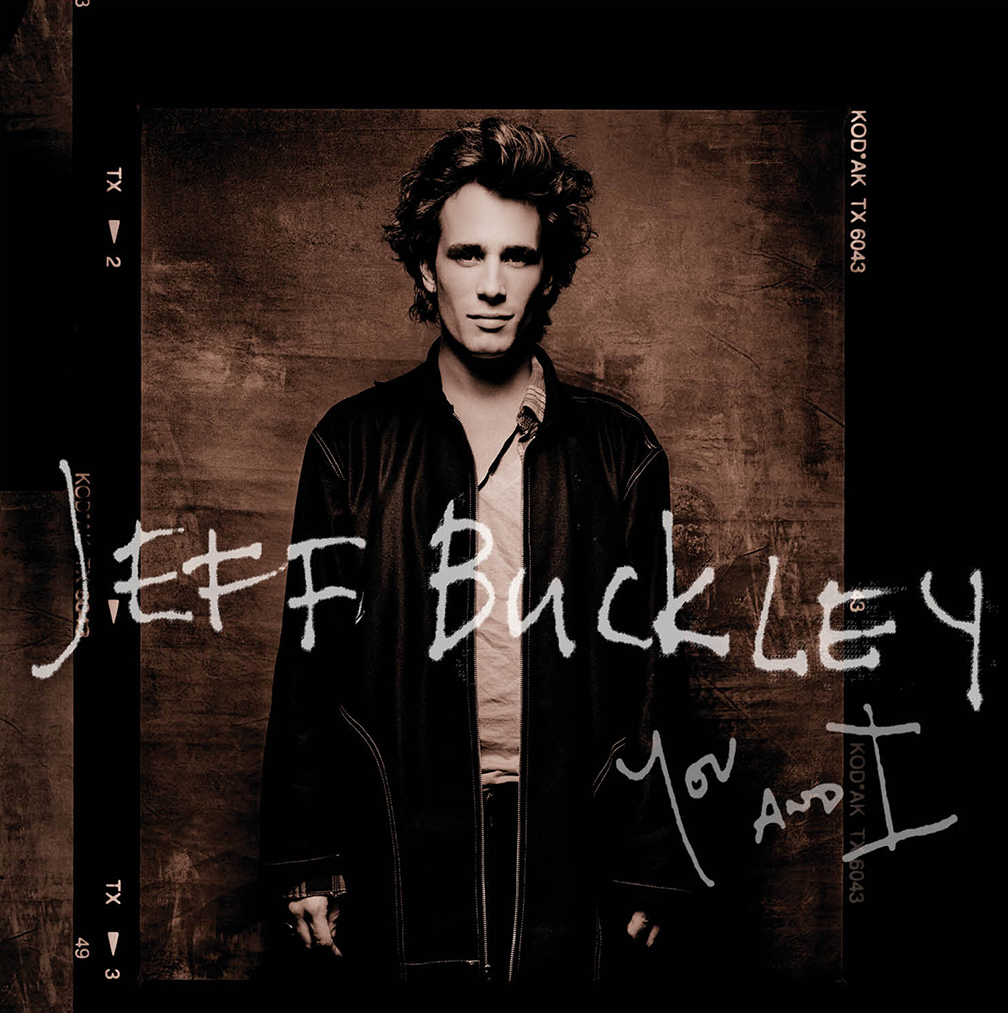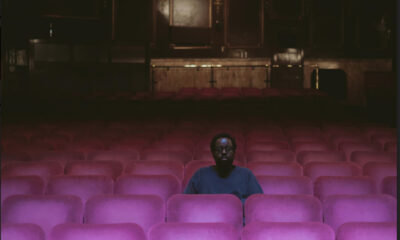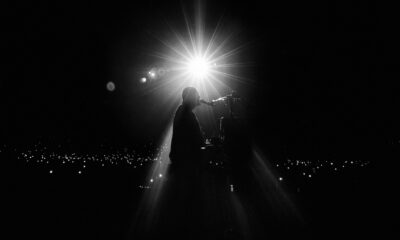Interviews
Interview with Steve Addabbo discussing Jeff Buckley’s upcoming album – You and I – February 2nd, 2016

By Mike Bax
jeffbuckley.com
www.facebook.com/JeffBuckley
twitter.com/JeffBuckley
www.shelterislandsound.com
www.facebook.com/steve.addabbo
On March 11th of 2016, Legacy Recordings / Columbia Records will unleash ten recently unarchived Jeff Buckley songs, for the world to hear for the very first time. Entitled You and I (a partial lift from the lone original song included here, ‘Dream of You and I’) the eight covers and two Buckley originals play like something of a modern day miracle – Buckley in a studio running through some of his favourite songs with a few microphones, some reverb and nothing else.
You and I includes Jeff’s unique interpretations of songs written by Bob Dylan (“Just Like a Woman”); Sylvester Stewart (“Everyday People,” recorded by Sly & the Family Stone); Joe Green (“Don’t Let the Sun Catch You Cryin’,” recorded by Louis Jordan, Ray Charles and others); Bob Telson (“Calling You,” recorded by Jevetta Steele for the 1987 film Bagdad Café); Morrissey and Johnny Marr (“The Boy with the Thorn in His Side” and “I Know It’s Over,” recorded by the Smiths); Booker T. Washington “Bukka” White (“Poor Boy Long Way from Home,” from a 1939 “field” recording made by John Lomax) and John Paul Jones/Jimmy Page/Robert Plant (“Night Flight,” recorded by Led Zeppelin). The other two songs that fill out You and I are two pieces of original music: the first-ever studio recording of his signature song, “Grace” and “Dream of You and I,” a haunting piece of somber music that included Jeff’s dialogue explaining his inspiration for the song.
For Buckley fans, it really doesn’t get much better than this. Sequestered away with Shelter Island Sound studio producer/engineer Steve Addabbo for almost 23 years, and recorded over a year before the actual Grace sessions started, these recordings give fans the opportunity to hear Buckley alone with a guitar and no audience, laying down songs exactly the way he wanted to hear them. It’s a dream come true. The album is amazing.
Steve Addabbo was gracious enough to spend twenty minutes on the phone with me, fielding a few questions about these recordings, discussing Buckley, and sharing his feelings about the impending release of these sessions. That interview is right here:
Mike: Have you been doing a lot of chatting about this upcoming Jeff Buckley release, or is this getting started?
Addabbo: People certainly seem interested, that’s for sure.
Mike: I can’t believe these recordings have sat dormant for over two decades. That’s just insane.
Addabbo: It is insane. I was very dutifully keeping them secret. I wasn’t allowed to do anything with them. They weren’t mine to release. I was scratching my head and wondering, “Why aren’t these going out?” So I was very pleasantly surprised when I heard a few months ago that this was finally going to see the light of day, you know? I thought, “Finally!”
Mike: So this wasn’t something you’d talk about amongst your friends then? “There are these songs I recorded with Buckley in 1993…”
Addabbo: That’s right. I would allude to them, but the only person I ever really played for was David Brown, who was doing the book about Tim and Jeff (Dream Brother). Somehow he had known I had done these sessions and he came to interview me when he was writing his book. When that book came out at the end of the 1900s / early 2000s, that was the first time that people even knew that these sessions existed. I remember seeing early in the depths of the internet something about the Addabbo sessions and thinking, “Oh jeez, the word is out.” I thought for sure they would have seen the light of day before this.
Mike: Nothing’s come out? Not even a b-side of one song as the b-side of a single? Nothing?
Addabbo: Nope. Nothing. Absolutely nothing.
Mike: Is this a common thing, music labels having musicians brought into a studio prior to recording their debut in order to test the waters? This is something that’s done often?
Addabbo: Yeah, I think it is. Within the business it’s part of the table of contents, right? I actually did a very similar thing with Suzanne Vega. Not that I was a part of the record company or anything. I was just being an independent producer at the time. We had just met her and it was just like that – “Come to the studio and come and play. No strings attached and no production.” And she came down and played eight of the songs that would become her first record. And I was blown away! So yeah, I think that is pretty common for new artists, especially with a writer or an artist like this, who had a very personal touch. I think that doing that is a really good first step in learning what direction things might take.
Mike: Right. You are making it sound like you have the best job in the world.
Addabbo: Yeah, well, when you are working it’s great. (laughs) It has its dry periods.
Mike: Was this your first introduction to Jeff Buckley? Had you heard of him before?
Addabbo: It pretty much was, yes. I don’t think I got to see him at Sin-é until after he was at the studio. I got a call from Steve Berkowitz (Senior VP at Legacy Recordings at the time) saying “Jeff Buckley, he’s Tim’s son, We’ve just signed him and I just want to throw him in the studio with you and let him do what he wants to do and let the tapes roll.” Which was great. I didn’t know what to expect. Of course, I knew of Tim Buckley. I wasn’t a particularly huge fan of his, but he was one of those musicians back then – you just couldn’t avoid Tim Buckley growing up being a teenager in the sixties. So, of course I was intrigued by what this could be. It was interesting to know that Jeff didn’t really know his father. And he didn’t really want to talk about it all that much either. People would always bring it up, but I think in terms of a person or whatever, he didn’t know him. It was just like a blank stare came out of him whenever you talked about Tim to him.
Mike: Sad. Was this just you and Steve Berkowitz in the studio with him during these sessions?
Addabbo: Yeah. I think at one point his manager was there. George Stein, I believe. Prepping for this release, we were listening to some of the in-between stuff in the songs and wondering “who’s voice is that?”. It wasn’t my voice or Berkowitz’s voice. And then I remembered that George was there for a bit. I definitely heard his voice at one point on the raw tapes. Yeah, basically it was just me and Steve.
Mike: Crazy. How many takes of these songs were done? Were they all done in a single fashion, or were they run through a multiple of times?
Addabbo: Um, there were some alternate takes of things. A lot of times he would maybe screw up in the middle and then start again. It was interesting as I looked back at the tapes, we did it in basically three days. He was just kind of going for it. If he screwed up he’d do it again, but it wasn’t like he was trying to make perfect tapes as we went along. So I think he relaxed and tried to have some fun with it. I think the version of ‘Calling You’ that is on the record – I think he had a miss start on it or something, but he didn’t have a lot of takes of that particular one. Early on in the session he started with ‘Just Like a Woman’ and he did that three times in a row and then he stopped. It turns out the one that they used was the one he did at Bearsville later, it’s not from our session. Everything else is from our session. ‘Just Like a Woman’ is from the pre-curser sessions to the actual Grace album when he was up in Woodstock recording.
Mike: So you would have been one of the first guys to hear ‘Grace’ in the studio?
Addabbo: Yeah. The actual song, yeah. I hadn’t really thought about that. But yeah, I guess that’s true.
Mike: Can you maybe recall what it felt like to you hearing some of these songs for the first time? In particular, that song? Were you stricken by it at all?
Addabbo: It’s a long time ago. I might not be able to remember a first impression. At the time I was struck the most with was his musical ability, his voice and his range of styles. It was a lot to take in in a certain sense. He’d go from a whisper to a Led Zeppelin tune and then back. He had such a wide range of ability and styles. He was well studied; he wasn’t just blowing it off. Just listen to the guitar part on the Sly and The Family Stone song ‘Everyday People’. He’s got great rhythm playing.
Mike: Oh yeah. He’s got it down, for sure.
Addabbo: Yeah. He plays that guitar part in ‘Grace’ ; it’s just beautiful. Real evocative, sensitive and has melancholia. It wasn’t like ‘Grace’ was an amazing song, it was more of an understanding that he was starting to write. And that it was good, you know? For the most part he was doing covers.
Mike: Yeah. It’s interesting that this would have just been like three days of ‘work’ for you. Now, there’s this whole different mystique to those sessions. They are finally getting a release and I think that fans are going to be pretty excited to hear them.
Addabbo: It seems like it. It’s certainly exciting for me. There’s a long span from 22-23 years ago now from when we did this. There’s a good deal more on those tapes and anytime I just put them on just for a second, you can’t take them off. Even if he’s screwing up or talking or tuning his guitar, I just get drawn right back to it. It was such a simple way of recording. We weren’t layering anything. We weren’t doing anything over it. It was just him, a couple of microphones, my reverb and that’s it. We didn’t remix this again. It’s what he heard, it’s what I heard, and that’s what everyone is going hear when it’s released in March. There’s nothing doctored about it at all.
Mike: I love that there’s dialogue left on a few of the songs included on the release. The dialogue about ‘Dream of You and I’ with him explaining where the song came from…
Addabbo: Yeah. That’s a great little story. Maybe someday they will put every inch of it out. I worked on that Bob Dylan box set this past summer The Cutting Edge, I mixed all that stuff. And, my God. That was like every nook and cranny was fixed and put out, you know?
Mike: The completionists; they want it all, right? That’s kind of what it is now – Buckley’s body of work is so small, this album is kind of a Holy Grail, really.
Addabbo: Yeah. It is. I consider this his first record. Because… it is. (laughs) It’s his first stuff – him unadorned. I believe in first records being that way. It’s wonderful to hear these sessions again. It wasn’t that I was any kind of genius – it was just put the mics up and let him go. I know how to record people. I know how to do acoustic instruments. But Jeff was one of those special artists who just walks in and your studio becomes a place of art. There’s really nothing else to it.
Mike: Don’t sell yourself too short. Someone could have duffed that session just as easily.
Addabbo: I’m not cutting myself short. I’m just saying that it was just three days of studio time for me to work. But then this guy walked through the door and I’m like “What the hell!? What a voice.” He was a funny guy. Very smart. Very friendly. Very warm, once he trusted you. Later on I would run into him when he was playing Sin-é and he’d be standing on the floor with a mic stand and a little guitar amp on his tele o strat with maybe five people in the place, and he would just do what he felt like doing, you know? Even getting the record deal didn’t change anything immediately, that’s for sure. I don’t think it ever really changed him.
Mike: I’ve played You and I through about six or seven times last night and earlier today. As great as all the songs are, I just keep going to that Zeppelin cover of ‘Night Flight’. I really love what he did with his voice on that song, you know?
Addabbo: That was what was so surprising and exciting about him. He could take his voice somewhere, all these different places, and it just seemed very natural for him.
Mike: He hits everything that Robert Plant does in that original, but he does it a different way and it’s clever. I really like it.
Addabbo: That’s exactly right. He could take a song and just do it his own way. Even on that song ‘Don’t Let the Sun Catch You Cryin’ which turns out to be an old jazz tune. You’d expect the Gerry and the Pacemakers version of it, but it’s a different song. He goes back to the 1940’s style and does it in this modern and beautiful way. Just fantastic.
Mike: Very interesting. There was never any talk of maybe releasing these tracks five years ago? Ten years ago?
Addabbo: No. I’d have conversations with Berkowitz: “When are they going to put out our record? These songs are just sitting here and it’s killing me!” I’d put them on from time to time and go “Fuck, this is good!” And then I think it was a couple of years back it was this film came out called Greetings from Tim Buckley, you know about that film?
Mike: I do, actually.
Addabbo: That film had a portrayal of Tim and Jeff. It was a weird coincidence they found me and my studio as they had no idea I’d worked with Jeff Buckley. So we were at this point where I have this guy who is playing Jeff Buckley in the film actually IN my studio trying to sound like Jeff Buckley and I’m like, “Oh my God, this is so nuts.”. So after they were done with my studio and everything was done, I sat them all down and broke out one song from my sessions. And they were like the ghost had just entered the room or something. It was surreal. And I thought maybe this means something. Maybe this will light a fire under Columbia Records. Or his mom. I think there was something with the estate, his mother and releasing this stuff. I don’t really know exactly. But they worked it all out.
Mike: I don’t know enough of the Jeff Buckley lore, really. I was late to the party in that regard. I got into Grace after he’d passed away.
Addabbo: The lore. I don’t think there’s much, really.
Mike: You must reflect on those 2 or 3 days now and see them in a different light. This would just build up and up – sitting on these recordings for this long and now they are going to finally see the light of day. And they are GREAT. So I would anticipate some hoopla over this release in March.
Addabbo: I think so. I’ve already spoken to Rolling Stone France. For hours. They were just all over this. I know Steve Berkowitz is on his way to Australia to do promo for it. Those two markets alone are going completely nuts over this album already. I think they are going to have a number one album for a week or two with it if nothing else trumps it. It’s funny because a lot of people maybe don’t know of Jeff Buckley. But when I mention it and someone knows it, you are right – it’s like the Holy Grail. There’s his whole story too, he died tragically and way too young. He’d be in his fifties now. I remember the day we found out he had died. It was just such a “what the hell?’ moment. I can remember going to the studio and looking out there to where he was sitting and being so saddened. The pity of this is that back then we didn’t have our cell phones, we didn’t have our digital cameras or anything, and I have like zero pictures of the sessions. We just didn’t want to put any pressure on him, you know? And now of course it would have been so amazing to have some shots of him recording.
Mike: Oh yeah. It would have been documented if it was right now. It would be Instagram fodder.
Addabbo: Right? Now everyone takes a picture of what they had for breakfast. It was a different time back then. No cell phones and no cameras. You had to have a real film camera in those days and know how to use it. So yeah, that’s a shame. But it is what it is. We’ll have to be even more mysterious and folklore-ish now. We’ll hand the story down by mouth.
Mike: Let me wrap this up by asking one more thing here. If you could put a coda down about Buckley, your sessions with him and the man himself, what might that be?
Addabbo: I think what I was most struck with about Jeff is, and what I was left with after those sessions was that he was an amazing talent. He could do ANYTHING which was a blessing and a curse. How do you point someone like this in a direction? I think what I walked away with at that point was an incredibly talented artist who looked like he was going to have a great career. He was a great looking guy. He was smart. He’d studied his instrument. His voice was magnificent. It just seemed like he was really going to happen. I guess that’s what I think about it, man. It’s a total tragedy and horror that he lost his life.
****
-

 Music3 days ago
Music3 days agoTake That (w/ Olly Murs) Kick Off Four-Night Leeds Stint with Hit-Laden Spectacular [Photos]
-

 Alternative/Rock5 days ago
Alternative/Rock5 days agoThe V13 Fix #010 w/ High on Fire, NOFX, My Dying Bride and more
-

 Hardcore/Punk2 weeks ago
Hardcore/Punk2 weeks agoHastings Beat Punks Kid Kapichi Vent Their Frustrations at Leeds Beckett University [Photos]
-

 Culture2 weeks ago
Culture2 weeks agoCirque Du Soleil OVO Takes Leeds Fans on a Unique, Unforgettable Journey [Photos]
-

 Alternative/Rock1 week ago
Alternative/Rock1 week agoA Rejuvenated Dream State are ‘Still Dreaming’ as They Bounce Into Manchester YES [Photos]
-

 Features3 days ago
Features3 days agoTour Diary: Gen & The Degenerates Party Their Way Across America
-

 Culture6 days ago
Culture6 days agoDan Carter & George Miller Chat Foodinati Live, Heavy Metal Charities and Pre-Gig Meals
-

 Music6 days ago
Music6 days agoReclusive Producer Stumbleine Premieres Beat-Driven New Single “Cinderhaze”















